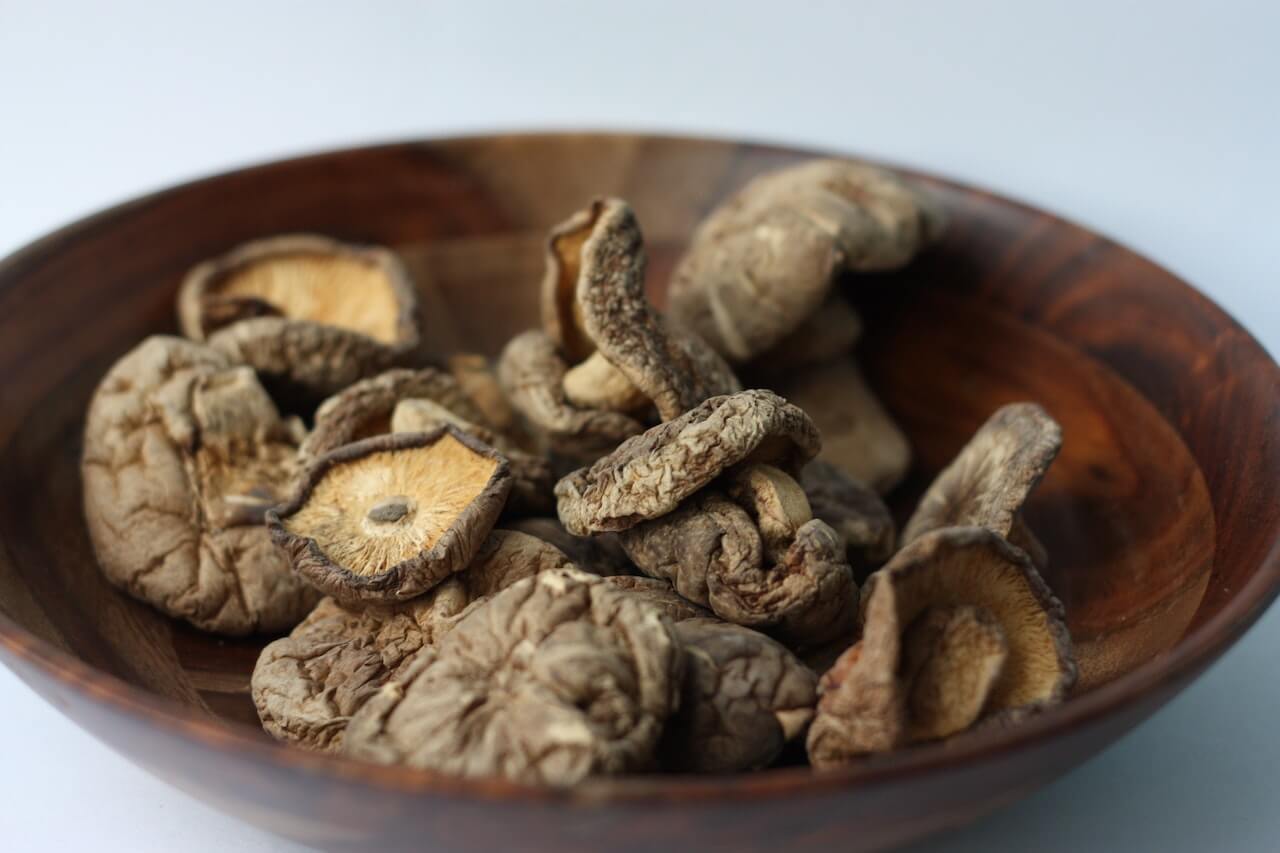Leaky gut syndrome, also known as intestinal permeability, is a condition that affects the lining of the intestines. In this condition, the gut lining becomes more permeable, allowing toxins, bacteria, and undigested food particles to pass through the bloodstream. This can trigger inflammation and lead to various health issues, including digestive problems, food sensitivities, and autoimmune diseases. Fortunately, there are steps you can take to heal your leaky gut and restore your gut health.
<p class="pro-tip"><strong>Also Read: </strong><a href=ways-to-reduce-inflammation>How to Reduce Inflammation</a>.</p>
Causes of Leaky Gut
Several factors can contribute to the development of leaky gut syndrome. A diet high in processed foods, sugar, and unhealthy fats can promote inflammation in the gut and disrupt the balance of beneficial gut bacteria, which are essential for maintaining a healthy intestinal lining. Chronic stress is another significant factor, as it can increase intestinal permeability and alter the composition of the gut microbiome. Additionally, certain medications, such as NSAIDs, antibiotics, and PPIs, can disrupt the balance of gut bacteria and increase intestinal permeability.
Infections caused by bacteria, viruses, or parasites can also damage the intestinal lining and contribute to leaky gut syndrome. Environmental factors like pollution, pesticides, and toxins can further disrupt the gut microbiome and increase inflammation in the gut. Additionally, genetic factors may predispose some individuals to develop leaky gut syndrome by affecting the integrity of the intestinal lining and the immune response in the gut. Addressing these underlying causes, such as improving diet, managing stress, and avoiding harmful medications and environmental toxins, can help improve gut health and reduce the risk of developing leaky gut syndrome.
Symptoms of Leaky Gut

Leaky gut syndrome can manifest with a variety of symptoms, ranging from mild to severe. Because the condition can cause inflammation and affect the absorption of nutrients, the symptoms can be diverse and impact various systems in the body.
Digestive issues are among the most common symptoms of leaky gut. These can include bloating, gas, diarrhea, constipation, and abdominal pain. Individuals with leaky gut may also experience food sensitivities, as the permeable gut lining allows undigested food particles to enter the bloodstream, triggering an immune response.
Beyond digestive problems, leaky gut syndrome can also affect other areas of health. Many people with a leaky gut report experiencing fatigue, which can be a result of nutrient malabsorption and the body's immune response to inflammation. Joint pain and muscle aches are also common, as inflammation can affect these areas of the body. Skin problems, such as acne, eczema, or rashes, may occur due to the immune response triggered by the leaky gut.
Moreover, leaky gut syndrome has been linked to mood disorders such as depression and anxiety. The gut and brain are closely connected through the gut-brain axis, and disruptions in gut health can influence mental health. Additionally, some individuals with leaky gut may experience autoimmune-like symptoms, as the immune system may mistakenly target healthy cells due to the increased permeability of the gut lining.
Diagnosis
Diagnosing leaky gut syndrome can be challenging, as no single test can definitively diagnose the condition. Healthcare providers often use a combination of tests and assessments to evaluate gut health and determine if intestinal permeability is a contributing factor to a person's symptoms.
One of the tests commonly used to assess gut health is the lactulose-mannitol test, which involves consuming a solution containing these sugars and then measuring their levels in the urine. An imbalance in the levels of these sugars can indicate increased intestinal permeability. However, this test is not widely available and may not be considered a gold standard for diagnosing leaky gut.
Another approach to diagnosing leaky gut involves evaluating symptoms and medical history. Healthcare providers may consider a person's symptoms, dietary habits, stress levels, and use of medications to assess the likelihood of leaky gut syndrome. Additionally, healthcare providers may perform blood tests to check for markers of inflammation and immune activity, which can be elevated in individuals with leaky gut.
In some cases, healthcare providers may recommend an elimination diet to identify food sensitivities and assess how certain foods may contribute to gut health issues. By removing potentially problematic foods from the diet and reintroducing them one at a time, individuals and healthcare providers can determine which foods may trigger symptoms related to leaky gut.
Overall, diagnosing leaky gut syndrome often involves a comprehensive evaluation of symptoms, medical history, and various tests to assess gut health and determine if intestinal permeability is a contributing factor to a person's health issues. Working with a healthcare provider knowledgeable about gut health and leaky gut syndrome can help individuals receive an accurate diagnosis and develop an appropriate treatment plan.
Treatment Options

Treating leaky gut syndrome typically involves a multifaceted approach that focuses on addressing the underlying factors contributing to the condition and promoting gut healing. One key component of treatment is adopting a gut-friendly diet that eliminates inflammatory foods and includes foods that support gut health. This may involve removing gluten, dairy, processed foods, and sugar from the diet and incorporating nutrient-dense foods such as vegetables, fruits, lean proteins, and healthy fats.
Probiotics and other supplements can also be beneficial in treating leaky gut syndrome. Probiotics are beneficial bacteria that can help restore balance to the gut microbiome and support gut health. Other supplements, such as digestive enzymes, glutamine, and zinc, may also be recommended to help repair the gut lining and improve digestive function.
In addition to dietary changes and supplements, lifestyle modifications can play a role in treating leaky gut syndrome. Managing stress through techniques such as yoga, meditation, and deep breathing can help reduce inflammation in the gut and support overall gut health. Getting regular exercise and prioritizing sleep are also important for promoting gut healing and reducing symptoms associated with leaky gut syndrome.
It's important to work with a healthcare provider or qualified nutritionist when treating leaky gut syndrome, as the approach to treatment may vary depending on the individual's symptoms and underlying health conditions. A comprehensive treatment plan that addresses diet, supplements, and lifestyle factors can help improve gut health, reduce inflammation, and alleviate symptoms associated with leaky gut syndrome.
Dietary Recommendations
Diet plays a crucial role in managing leaky gut syndrome and promoting gut healing. One key dietary recommendation for leaky gut is to eliminate foods that can contribute to inflammation and damage the intestinal lining. These include processed foods, refined sugars, gluten, and dairy products. These foods can increase intestinal permeability and trigger immune responses that worsen leaky gut symptoms.
Instead, focus on incorporating whole, nutrient-dense foods that support gut health. Vegetables, fruits, and whole grains are rich in fiber, vitamins, and minerals that can help nourish the gut lining and promote the growth of beneficial gut bacteria. Bone broth is another excellent food for healing leaky gut, as it is rich in collagen and amino acids that can help repair the intestinal lining.
Fermented foods like sauerkraut, kimchi, and kefir are also beneficial for leaky gut syndrome, as they contain probiotics that can help restore balance to the gut microbiome. Omega-3 fatty acids found in fish like salmon and flaxseeds can help reduce inflammation in the gut and support overall gut health. Additionally, herbs and spices like turmeric, ginger, and garlic have anti-inflammatory properties that can be beneficial for leaky gut syndrome.
Staying hydrated and drinking plenty of water throughout the day is also important. Adequate hydration is essential for maintaining healthy digestion and supporting the mucosal lining of the intestines. Focusing on a diet rich in whole, unprocessed foods and avoiding inflammatory foods can help support gut healing and alleviate symptoms associated with leaky gut syndrome.
Supplements
Supplements can help manage leaky gut syndrome by addressing nutrient deficiencies, reducing inflammation, and supporting gut healing. One of the most commonly recommended supplements for leaky gut is probiotics. Probiotics are beneficial bacteria that can help restore balance to the gut microbiome and improve gut health. They can also help strengthen the intestinal barrier and reduce intestinal permeability.
Another supplement that may be beneficial for leaky gut is L-glutamine. Glutamine is an amino acid that plays a key role in maintaining the integrity of the intestinal lining. It can help repair damage to the gut lining caused by inflammation and promote the healing of the mucosal lining.
Digestive enzymes are another supplement that can be helpful for individuals with leaky gut syndrome. These enzymes can aid in the digestion and absorption of nutrients, which can be impaired in individuals with compromised gut health. They can also help reduce bloating, gas, and other digestive issues associated with a leaky gut.
Omega-3 fatty acids, such as those found in fish oil supplements, can help reduce inflammation in the gut and support overall gut health. Other supplements that may be beneficial for leaky gut include zinc, vitamin D, and turmeric, all of which have anti-inflammatory properties and can support gut healing.
It's important to note that while supplements can be helpful, they should not be used as a substitute for a healthy diet and lifestyle. It's always best to consult with a healthcare provider before starting any new supplement regimen, especially if you have underlying health conditions or are taking medications.
Lifestyle Changes
Lifestyle changes can play a significant role in managing leaky gut syndrome and promoting gut healing. One key lifestyle change recommended for leaky gut is reducing stress. Chronic stress can negatively impact gut health, increasing inflammation and disrupting the balance of gut bacteria. Practicing stress-reducing techniques such as yoga, meditation, deep breathing, or spending time in nature can help support gut health.
Getting regular exercise is another important lifestyle change for leaky gut syndrome. Exercise can help reduce inflammation in the body, improve digestion, and support overall gut health. Aim for a combination of cardiovascular exercise, strength training, and flexibility exercises to support overall health and well-being.
Adequate sleep is also crucial for gut health and overall well-being. Poor sleep can disrupt the balance of gut bacteria and increase inflammation in the body. Aim for 7-9 hours of quality sleep each night, and practice good sleep hygiene habits such as keeping a regular sleep schedule, creating a relaxing bedtime routine, and avoiding screens before bed.
In addition to these lifestyle changes, it's important to avoid smoking and limit alcohol consumption, as both can have negative effects on gut health. Finally, staying hydrated by drinking plenty of water throughout the day can help support digestion and promote a healthy gut lining. These lifestyle changes, dietary modifications, and supplements can help manage leaky gut syndrome and promote gut healing.
Conclusion
Healing leaky gut syndrome is a multifaceted process that involves addressing dietary, lifestyle, and environmental factors that contribute to the condition. Following a gut-healing diet, incorporating supplements, and making lifestyle changes can support your gut health and reduce inflammation, leading to improved overall health and well-being. If you suspect you have leaky gut syndrome, it's important to work with a healthcare professional to develop a comprehensive treatment plan tailored to your individual needs.
Learn More About How to Improve Blood Sugar Health With Signos’ Expert Advice
Signos CGM empowers you to improve your health by keeping track of your diet, exercise, sleep habits, and blood sugar. Knowledge is power, and a CGM can give you specific information about how your habits affect your health.
Signos has a team of health experts who compile evidence-based nutrition information to help you improve your health and wellness. Check out the resources here.
Find out if Signos is a good fit for you by taking a quick quiz.
<p class="pro-tip"><strong>Learn More: </strong><a href=gut-health>The Proper Care and Feeding of Your Gut</a>.</p>
- Item 1
- Item 2
- item 3


.jpg)





























